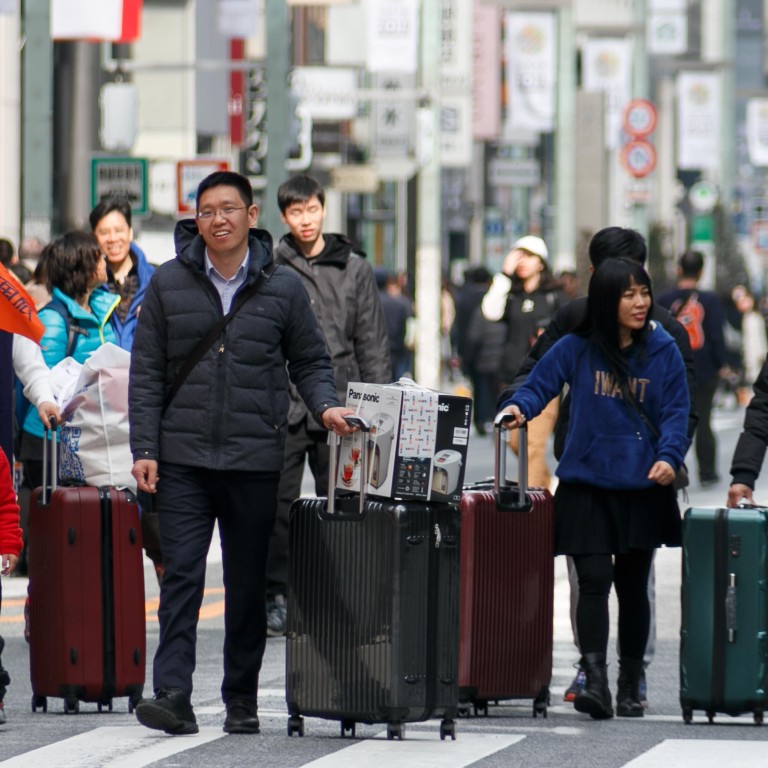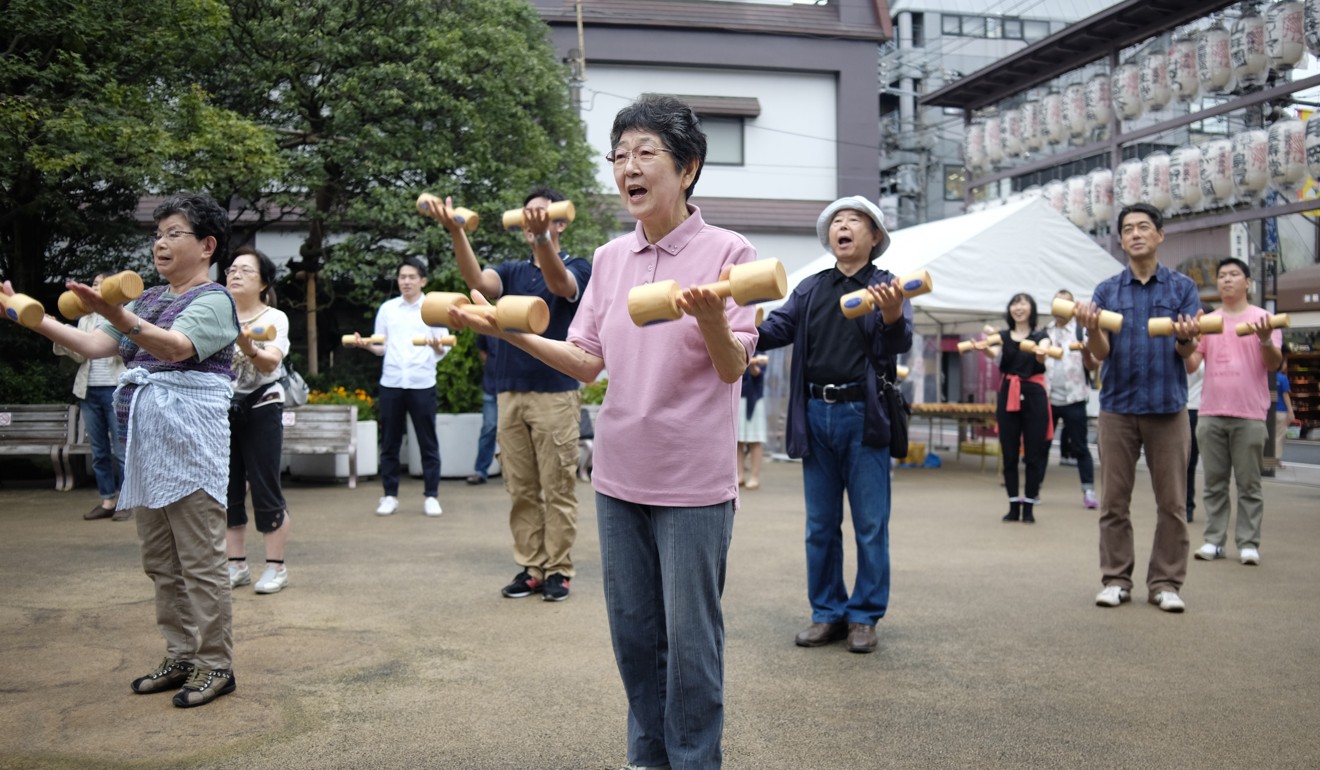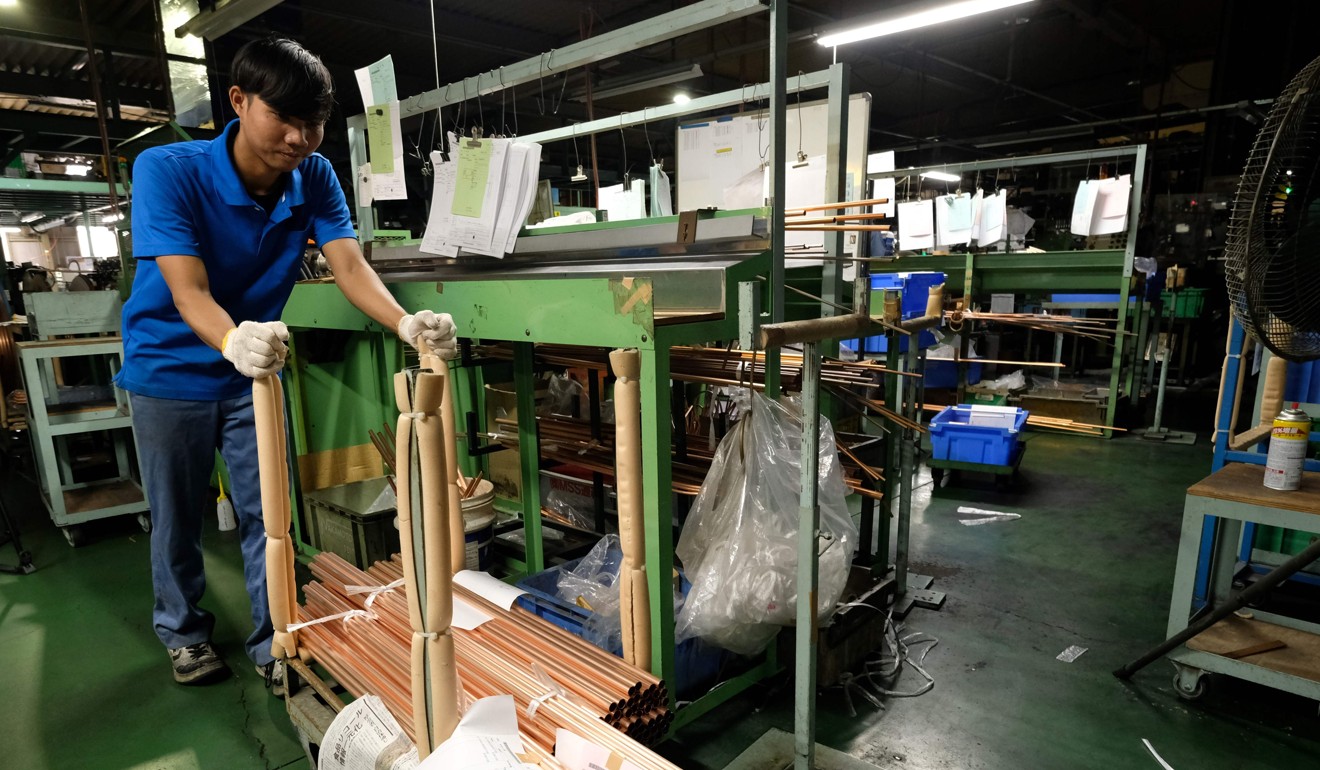
As the Japanese population shrinks, Chinese, South Koreans and Vietnamese arrive in growing numbers
- Japan’s ageing society has contributed to a labour shortage – in response, more relaxed employment regulations have opened the doors to foreigners
- The newcomers are mostly from other parts of Asia: China accounts for the single largest immigrant population, followed by South Korea and Vietnam
There are now 2,667,000 foreigners living in Japan – an increase of about 170,000 from 12 months earlier, according to annual statistics released this month by the Ministry of Internal Affairs and Communications.

After five consecutive years of increases, these foreigners now account for 2.09 per cent of Japan’s population.
“We first began to see a gradual rise in foreign nationals living in Japan about 30 years ago, but it has increased in the last 10 years or so,” said Masataka Nakagawa, a senior researcher with the government-run National Institute of Population and Social Security Research.
‘I was spat on, peed on, spanked’: Filipino nurse on working in Japan
The rise in the pool of foreigners comes even as Japan’s overall population experiences a steady decline. At the start of 2019 it stood at 124,776,364 – or 433,239 fewer people than the previous year. It was the 10th straight year-on-year decrease and the steepest decline since statistics were first collated in 1968.
There were 921,000 births in 2018, coming in below the 1 million threshold for the third consecutive year. Conversely, 1,363,564 people died, the sixth consecutive increase.
According to researchers at Tohoku University, if the population continues to decline at the current rate, the Japanese will be extinct by August 16, 3766.

“A lot of them are students who are staying for a few years and many work in part-time jobs while they are here, but the government changed the law earlier this year to allow qualified foreign workers to start applying for jobs in some specific sectors,” Nakagawa said.
Everything is efficient and runs on time and the people are always polite and considerate
Many of the new semi-skilled arrivals will be working in food services, cleaning, construction, agriculture, fishing, vehicle repair and operating industrial machinery, while individuals with recognised skills will be eligible for a broader range of employment. Some 345,000 working visas are expected to be issued in the first five years, but this will still not be enough to address the shortfall in certain sectors.
Many of the Vietnamese who arrive in Japan come as part of a technical trainee programme but with Japan opening its doors wider, there are fears the programme could be further abused.
3 in 4 Japanese distrust South Koreans – and the feeling’s mutual
“There are a lot of very good reasons to stay in Japan,” Harris said. “It’s very safe here. Everything is efficient and runs on time and the people are always polite and considerate.
“There is also this image of Japan being slathered in concrete but outside the big cities there are some stunningly beautiful natural places where property is very cheap, in comparison to Canada.
“Professionally, Japan has been good to me as well. Tokyo is a city of more than 200 global corporations but they forgot to train their people in how to run a global organisation, so they need people like me to work for them. That has provided a very comfortable living for me and my family.”
However, Harris admits that even if he lived in Japan “for 100 years” he would never be considered Japanese.
It’s been very hard for me to go home
“It’s different here,” he says. “If you go to Canada, Australia or a lot of other countries, you spend a few years there and you can apply for citizenship. It doesn’t happen like that here. That can make some things a little more challenging but it’s not a deal breaker.”
Harris lives on the coast in Chiba prefecture, east of Tokyo, and has noticed an increase in the number of foreign nationals in the city and his rural neighbourhood.
“We’re certainly seeing a lot more Vietnamese, Chinese and Burmese out here and they are employed in the nearby fishing plants,” he said. “I never saw that 10 years ago.”
Japan: now open to foreign workers, but still just as racist?
Harris lives in Onjuku and he says the town needs the newcomers. One-quarter of the 8,000 residents are 80 or older and just 50 teenagers graduated from the local junior high school this year.
Nicholas van Santen, a more recent arrival from Australia, said: “There are a lot of positives to life here. It’s very safe, the people are always respectful and helpful and the food is phenomenal – wherever I go after Japan I always end up disappointed.”
Van Santen has a contract to oversee international communications for the upcoming Rugby World Cup but plans to stay in Japan beyond that.
For Min Zheng Wen, who is originally from China’s Heilongjiang province, he had no intention of staying in Japan more than a few years when he first arrived in 2003.
But the way of life, career opportunities and friends he made meant it was “very hard for me to go home.”
Why Korea and Japan are learning to accept foreign workers
“Japan is safe, it is clean and the people that I meet here are intelligent and honest, and that makes it comfortable to live here and raise a family.”

